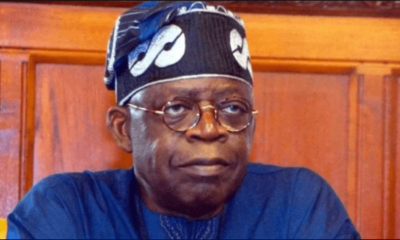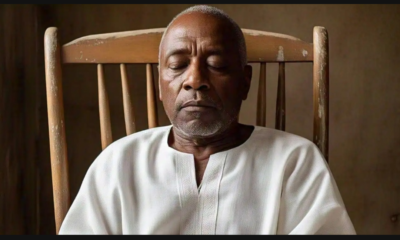Uncategorized
Al Qaeda Members Disown Boko Haram- New York Times
As word spread like wildfire on Twitter and
Facebook that Nigerian militants were preparing to auction off more than 200 kidnapped schoolgirls in the name of Islam, a very different Internet network started quietly buzzing too.
“Such news is spread to taint the image of the Mujahedeen,” wrote one dubious poster on a web forum used by Islamic militants whose administrator uses a picture of Osama bin Laden. “I have brothers
from Africa who are in this group,” attested another, insisting that they were like “the Quran walking the earth.”
Boko Haram, the cultlike Nigerian group that carried out the kidnappings, was rejected long ago by mainstream Muslim scholars and Islamist parties around the world for its seemingly senseless cruelty and capricious violence against civilians. But this week its stunning abduction appeared too much even for fellow militants normally eager to condone terrorist acts against the West and its allies.
“There is news that they attacked a girls’ school!” another astonished poster wrote on the same jihadi forum, suggesting delicately that Boko Haram may perhaps be killing too many noncombatants instead of armed enemies. He prayed that God would “hold them steady to the path” of Islam.
The dismay of fellow jihadists at the innocent targets of Boko Haram’s violence is a reflection of the increasingly far-flung and ideologically disparate networks of Islamist militancy, which now include the remnants of Bin Laden’s puritanical camps, Algerian
cigarette smugglers and a brutal Somalian offshoot.
“The violence most of the African rebel groups practice makes Al Qaeda look like a bunch of schoolgirls,” said Bronwyn Bruton, an Africa scholar at the Atlantic Council in Washington. “And Al Qaeda at this point is a brand — and pretty much only a brand — so you have to ask yourself how they are going to deal with the people who are doing things so hideous even the leaders of Al Qaeda are unwilling to condone them.”
Boko Haram is in many ways an awkward ally for any of them.
Its violence is broader and more casual than Al Qaeda or other jihadist groups. Indeed, its reputation for the mass murder of innocent civilians is strikingly inconsistent with a current push by Al Qaeda’s leaders to avoid such deaths for fear of alienating potential
supporters. That was the subject of the dispute that led to Al Qaeda’s recent break with its former affiliate, the Islamic State of Iraq and Syria.
What’s more, Boko Haram’s recruits and targets have always been purely local, not international. And the group is centered on a messianic leader who claims to speak with God and demands that its adherents surrender all their possessions to the group, resembling a cult, like Uganda’s Lord’s Resistance Army, more than it does an orthodox Islamist movement.
But Boko Haram and Al Qaeda’s affiliates have both overlooked those differences to cultivate an alliance of convenience, papering over disagreements in tactics and values while emphasizing shared principles. They have reaped the propaganda value of association
with each other’s deadly exploits, and in limited instances perhaps even trained or collaborated together.
Continue reading the main story
Their partnership demonstrates a centripetal force pulling together even disparate insurgencies against common foes. And, scholars say, Boko Haram now also represents a growing challenge to Al Qaeda
as it seeks to cultivate more such affiliates among loosely Muslim or Islamist insurgencies across Africa, almost all of them far more brutally violent than even the acolytes of Bin Laden can accept.
First formed in the early 2000s, Boko Haram grew out of an ultraconservative Islamic movement of well-educated students. The group grew overtly political only later, under the leadership of its charismatic founder, Mohamed Yusuf.
Its nickname in the African language of Hausa, Boko Haram, is usually roughly translated to mean that “deceptive” or “Western” education is “forbidden.” But scholars say that the phrase had a kind of double meaning that was at once religious and social in the
context of northern Nigeria.
Western education was available only to a very small elite who typically traveled to British universities and then returned to rule from the capital over the impoverished North, and ending the tyranny of that elite was the main objective of Mr. Yusuf’s
movement.
Mr. Yusuf and Boko Haram tapped into growing anger among northern Nigerians at their poverty and lack of opportunity as well as the humiliating abuses of the government’s security forces, said Paul Lubeck, a professor at the University of California, Santa
Cruz, who studies the group. At first, even as Boko Haram turned to violent opposition to the government, the group avoided civilian casualties.
-

 News1 day ago
News1 day ago“There’s hunger, however there’s huge” hope – Tinubu Lament
-

 News1 day ago
News1 day ago“This is m@dness” – Young man disrupts the peace inside banking hall as he plays song using his JBL speaker, clip trends online (Watch)
-

 Lifestyle1 day ago
Lifestyle1 day agoNigerian man who passed away 10 years ago confesses he’s currently in Lagos, reveals big secret
-

 Biafra1 day ago
Biafra1 day agoFG confirms arrest of Simon Ekpa by Finnish authorities








